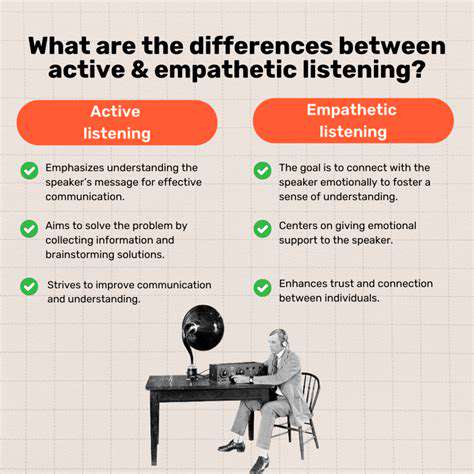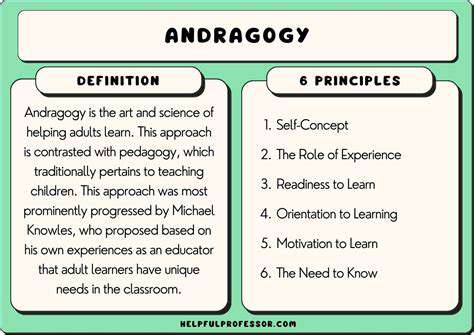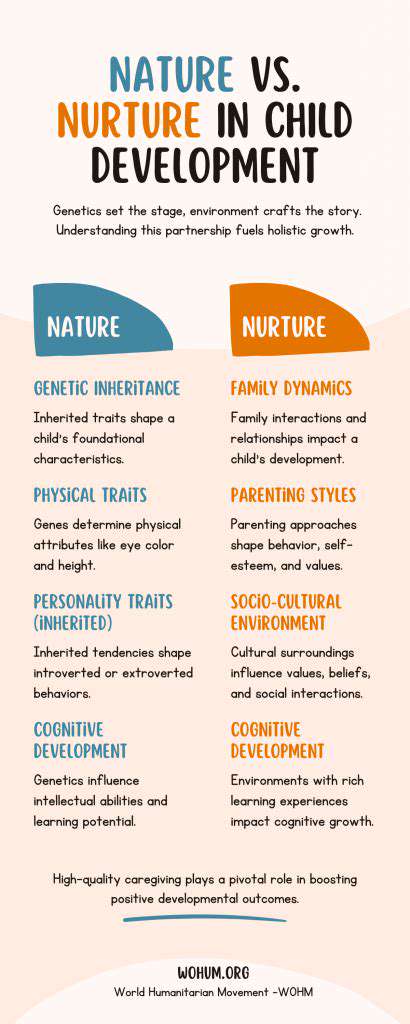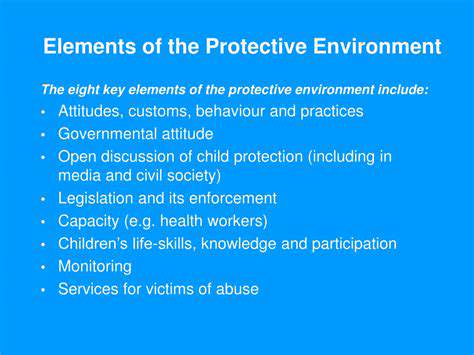Overcoming Adversity: Teaching Resilience in Challenging Times
Resilience is more than just bouncing back from adversity; it's the ability to adapt, learn, and thrive in the face of challenges. Developing resilience is a crucial life skill that empowers individuals to navigate setbacks with grace and emerge stronger on the other side. Cultivating this inner strength is essential for personal growth and achieving long-term goals.
Resilience isn't a fixed trait; it's a skill that can be learned and strengthened over time. By actively working on strategies to cope with stress and overcome obstacles, individuals can build their resilience and improve their overall well-being.
Identifying and Addressing Stressors
Understanding the stressors in your life is the first step towards building resilience. Identifying these triggers, whether they are relationship problems, financial concerns, or work-related pressures, is crucial to developing effective coping mechanisms. Recognizing these stressors helps you to proactively address them and develop strategies for managing them effectively.
Once identified, it's important to analyze the nature of each stressor. Some stressors may require immediate action, while others may need a more long-term approach. This process of identification and analysis is key to developing a personalized resilience plan.
Developing Coping Mechanisms
Developing a repertoire of coping mechanisms is essential for managing stress and building resilience. These mechanisms could include healthy lifestyle choices like exercise and balanced nutrition, mindfulness practices, or seeking support from trusted friends, family, or professionals. These coping mechanisms can help you navigate challenging situations with greater ease and composure.
Learning to recognize and manage your emotional responses is also a critical aspect of developing effective coping mechanisms. This involves understanding your emotional triggers and developing strategies to regulate your emotions in stressful situations. It's about finding healthy ways to process difficult emotions and prevent them from overwhelming you.
Building a Support System
A strong support system is vital for fostering resilience. Surrounding yourself with people who offer encouragement, understanding, and practical help during challenging times can significantly impact your ability to bounce back from setbacks. Having a network of trusted individuals to rely on can provide invaluable emotional support and practical assistance.
Practicing Self-Care and Mindfulness
Self-care and mindfulness practices are powerful tools for building resilience. Taking time for activities that rejuvenate and nourish your mind, body, and spirit is crucial for managing stress and promoting overall well-being. Prioritizing self-care allows you to recharge and maintain a sense of equilibrium during challenging times.
Incorporating mindfulness practices, such as meditation or deep breathing exercises, can help you stay grounded and present, reducing the impact of stress on your mental and emotional state. Mindfulness helps you to focus on the present moment and cultivate a sense of calm and clarity, which are essential for building resilience.
Recognizing and Acknowledging Adversity
Understanding the Nature of Adversity
Adversity, in its various forms, is an inevitable part of the human experience. From personal struggles to global crises, we all encounter challenges that test our resilience and force us to adapt. Recognizing adversity as a natural part of life, rather than a singular catastrophic event, is the first step towards developing the strength to overcome it. This understanding allows us to approach difficulties with a more balanced perspective, avoiding feelings of helplessness or despair.
Acknowledging the specific nature of the adversity is crucial. Is it a financial hardship, a relationship breakdown, a health issue, or a professional setback? Understanding the unique characteristics of the challenge allows for more targeted and effective coping strategies.
Developing Emotional Intelligence
Emotional intelligence is a cornerstone of resilience. It involves recognizing and understanding our own emotions, as well as empathizing with the emotions of others. By developing self-awareness, we gain a deeper understanding of our reactions to adversity, allowing us to manage our responses more effectively. This includes recognizing when we are overwhelmed, seeking support when needed, and practicing self-compassion. This crucial skill allows for a more balanced approach to navigating challenging situations.
Empathy, a key component of emotional intelligence, allows us to connect with others experiencing similar struggles. Sharing experiences and offering support can create a sense of community and lessen the feeling of isolation often associated with adversity.
Building a Support System
A strong support system is vital in navigating adversity. This includes family members, friends, mentors, and even professional counselors. Having individuals who offer encouragement, understanding, and practical assistance can significantly impact our ability to cope with challenges. These individuals can provide different perspectives, offer practical advice, and offer a listening ear during difficult times.
Seeking support from trusted sources is not a sign of weakness, but rather a demonstration of strength. It acknowledges the importance of community and connection in times of need. Building and nurturing these relationships is an investment in our overall well-being.
Cultivating a Growth Mindset
A growth mindset is characterized by the belief that abilities and intelligence can be developed through dedication and hard work. Embracing challenges as opportunities for learning and growth, rather than viewing them as insurmountable obstacles, is crucial for resilience. This mindset encourages us to persist through setbacks, viewing them as stepping stones rather than roadblocks on the path to success.
Practicing Self-Care and Mindfulness
Self-care is often overlooked in times of adversity, but it is essential for maintaining well-being. Taking care of our physical, mental, and emotional health through activities like exercise, healthy eating, sufficient sleep, and relaxation techniques is critical. Mindfulness practices can help us ground ourselves in the present moment, reducing anxiety and promoting a sense of calm amidst challenging circumstances.
Prioritizing self-care allows us to approach adversity with greater clarity and focus. It is a crucial tool for maintaining a healthy perspective and promoting overall well-being.
Seeking Professional Help When Needed
In some cases, adversity can be overwhelming and require professional support. Reaching out to therapists, counselors, or other mental health professionals can provide specialized guidance and strategies for coping with difficult situations. This is a sign of strength, not weakness, and it can significantly improve our ability to navigate challenges and build resilience.
Seeking professional help demonstrates a commitment to personal well-being and recognizes the importance of specialized support during times of significant adversity. It acknowledges the reality that sometimes we need more than our own resources to overcome the challenges we face.
Incorporating movement into everyday life is crucial for maintaining physical and mental well-being. A sedentary lifestyle can lead to numerous health problems, from cardiovascular disease to decreased bone density. By weaving movement into your routine, you can significantly improve your overall health and quality of life. This holistic approach goes beyond just exercising; it involves embracing movement as an integral part of your daily activities.
Building a Support System for Long-Term Resilience
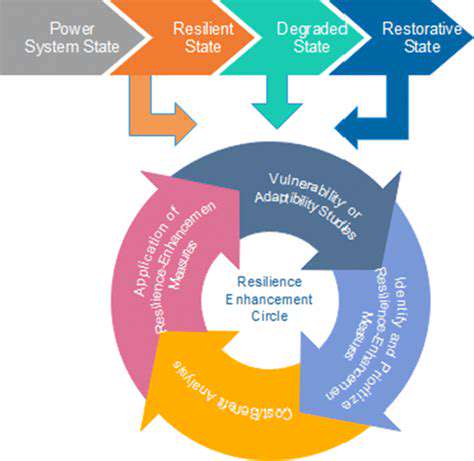
Building a Strong Foundation
Establishing a robust support system is crucial for navigating the challenges of long-term projects or endeavors. It involves identifying key individuals and resources who can provide guidance, assistance, and emotional support. This foundational element sets the stage for sustained effort and success.
A well-structured support system acts as a safety net, cushioning against setbacks and providing encouragement during periods of doubt. It allows for the sharing of burdens and the celebration of milestones, fostering a sense of community and belonging.
Identifying Key Contributors
Identifying the right individuals is paramount. This involves understanding the specific needs of the project or situation and matching those needs with the skills and expertise of potential supporters. Carefully consider who possesses relevant experience, empathy, and a genuine desire to help.
Cultivating Trust and Open Communication
Building trust is essential for a functioning support system. Open communication channels, where individuals feel comfortable sharing their concerns and celebrating achievements, are vital. This fosters a supportive environment where vulnerability is welcomed and mutual respect is the norm.
Open and honest dialogue is crucial to addressing potential issues proactively, preventing them from escalating into larger problems. Creating a culture of open communication helps to cultivate a strong and resilient support network.
Leveraging External Resources
Don't underestimate the power of external resources. This could include professional mentors, support groups, online communities, or even specific organizations dedicated to providing assistance in your field. Exploring these resources can provide valuable perspectives and practical solutions.
Accessing external resources broadens the scope of support and allows for the integration of diverse expertise and experiences, enriching the overall support structure.
Prioritizing Self-Care
Taking care of your own well-being is an integral part of building a strong support system. Prioritizing self-care allows you to be more present, patient, and effective in supporting others. It ensures that you have the emotional reserves to navigate the challenges and celebrate the triumphs alongside your support system.
Self-care is not selfish; it is essential for maintaining your energy levels and mental fortitude. This allows you to be a more effective and compassionate support system member for those around you.
Addressing Potential Conflicts
Recognizing and proactively addressing potential conflicts is vital. Disagreements are inevitable in any group setting, and a strong support system can effectively navigate these moments. Understanding the root causes of conflict and establishing clear communication protocols can prevent disagreements from derailing the support system.
Conflicts can be valuable opportunities for growth and understanding, provided they are managed constructively. Open dialogue and a commitment to finding common ground are paramount in maintaining a supportive environment.
Adapting and Evolving the System
Support systems are not static; they require adaptation and evolution as circumstances change. Regularly assessing the effectiveness of the system, identifying areas for improvement, and making adjustments as needed is essential for long-term success. This ensures that the support system remains relevant and responsive to the changing needs of the individuals involved.
Over time, the needs and priorities of those involved in the support system may shift. Regular review and adaptation ensure that the system continues to meet the evolving needs of everyone.



